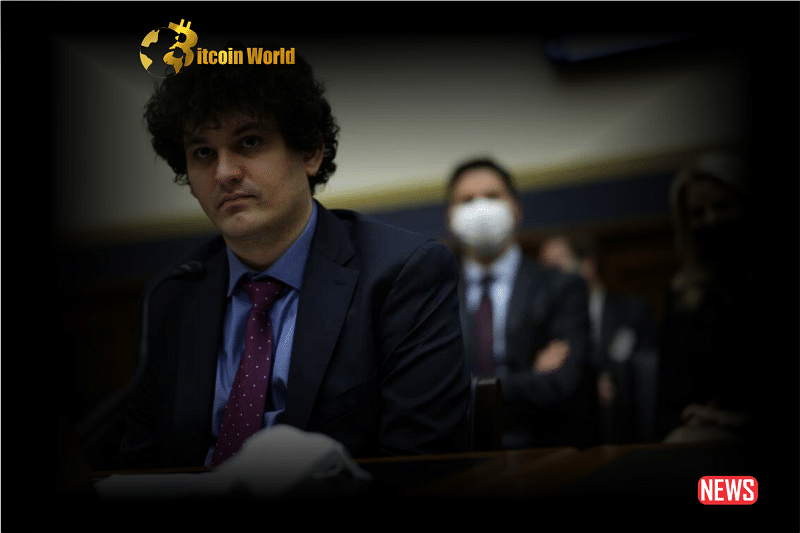The crypto world is watching with bated breath as the trial of Sam Bankman-Fried (SBF), the once-celebrated founder of the FTX exchange, unfolds. In a significant development that could sway the proceedings, a US District Judge has placed restrictions on SBF’s ability to call upon expert witnesses. This move has raised eyebrows and sparked intense debate about its potential impact on the trial’s outcome. Let’s dive into what this means for SBF and the wider cryptocurrency landscape.
Why Were Expert Witnesses Crucial for SBF’s Defense?
Bankman-Fried’s legal team had planned to present a robust defense by bringing in seven expert witnesses. These experts were intended to shed light on complex aspects of:
- Cryptocurrency Markets: To explain the nuances and volatility inherent in the crypto space.
- English Contracts: To interpret the terms of service of FTX, which are governed by English law.
- Financial Practices: To argue that FTX’s operations were in line with industry standards.
The core strategy was to convince the jury that SBF acted in good faith amidst the chaotic crypto market, and that any missteps were not intentional fraud. However, Judge Lewis Kaplan’s recent ruling has thrown a wrench into these plans.
Judge Kaplan’s Ruling: A Breakdown
Responding to a motion from the US Department of Justice, Judge Kaplan decided to exclude three of the seven proposed expert witnesses. Here’s a closer look at why each witness was deemed inadmissible:
| Expert Witness | Intended Testimony | Reason for Exclusion |
|---|---|---|
| Peter Vinella | FTX’s use of accepted practices in the financial services industry. | Testimony deemed irrelevant to the specific charges of fraud. |
| Lawrence Akka (English Barrister) | Interpretation of FTX’s terms of service under English law. | Judge Kaplan stated that legal interpretation is the role of the court, not expert witnesses. Akka’s testimony was considered “legal opinion.” |
| Thomas Bishop, Joseph Pimbley, Brian Kim (Consultants & Data Analyst) | Testimony on FTX financials, software, and document metadata. | Rejected based on Rule 16, citing insufficient prior disclosure of specific evidence by the government. |
This table clearly illustrates the setbacks faced by SBF’s defense team. The judge’s decisions suggest a tight rein on what evidence and interpretations will be presented to the jury.
What Arguments Might SBF Still Use?
Despite these limitations, court documents suggest that Bankman-Fried’s defense might still pursue certain lines of argument. One notable point revolves around FTX’s terms of service. The defense may argue:
- Terms of Service Ambiguity: That FTX’s terms didn’t explicitly forbid using customer deposits for investments.
- Industry Standard Practice: Drawing parallels to traditional banks using deposits for loans, suggesting such practices are common in the crypto industry as well.
This defense strategy aims to paint a picture where FTX’s actions, while perhaps risky, were not necessarily fraudulent but rather aligned with (or at least not explicitly prohibited by) industry norms and the exchange’s own user agreements.
The Prosecution’s Counter-Strategy
The prosecution, on the other hand, is gearing up to present a compelling case against Bankman-Fried. Their strategy heavily relies on the testimony of former FTX and Alameda executives who have already pleaded guilty. These individuals are expected to provide insider accounts of the alleged fraud, potentially offering damning evidence against SBF. This sets the stage for a dramatic courtroom showdown, pitting insider testimonies against SBF’s claims of mismanagement rather than intentional fraud.
The Trial’s Timeline and What to Expect
The trial is expected to be a lengthy affair, potentially lasting up to six weeks. Here’s what we know:
- Duration: Anticipated to span six weeks.
- SBF’s Plea: Not guilty to all charges.
- SBF’s Acknowledgment: Admits to risk management failures at FTX.
- SBF’s Denial: Vehemently denies misappropriating funds.
For those following the crypto market volatility and the broader implications for crypto wealth, this trial is a crucial event. It not only determines the fate of a once-billionaire crypto mogul but also sets a precedent for regulatory scrutiny and accountability within the cryptocurrency industry.
The Bigger Picture: Implications for Crypto
The FTX saga and the trial of Sam Bankman-Fried have far-reaching consequences for the cryptocurrency world. Here’s why this case matters:
- Regulatory Scrutiny: The collapse of FTX has intensified calls for stricter regulation of cryptocurrency exchanges and related businesses. This trial will likely influence future regulatory frameworks.
- Investor Confidence: The outcome of this trial could impact investor confidence in the crypto market. A conviction might deter fraudulent activities but could also further dampen market sentiment in the short term.
- Transparency and Accountability: The trial highlights the critical need for transparency and accountability within the crypto industry. It underscores that even in a decentralized and rapidly evolving space, traditional principles of financial integrity must prevail.
Final Thoughts
The limitations placed on Sam Bankman-Fried’s expert witnesses mark a significant turn in his ongoing fraud trial. As the proceedings unfold, the crypto community and the wider financial world will be closely watching. Will SBF be able to mount a successful defense despite these setbacks? And what will be the long-term repercussions for the cryptocurrency market regardless of the verdict? One thing is certain: this trial is a landmark moment that will shape the future of crypto regulation and accountability for years to come. Stay tuned for more updates as this high-stakes legal battle continues.
Disclaimer: The information provided is not trading advice, Bitcoinworld.co.in holds no liability for any investments made based on the information provided on this page. We strongly recommend independent research and/or consultation with a qualified professional before making any investment decisions.


